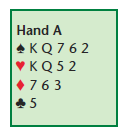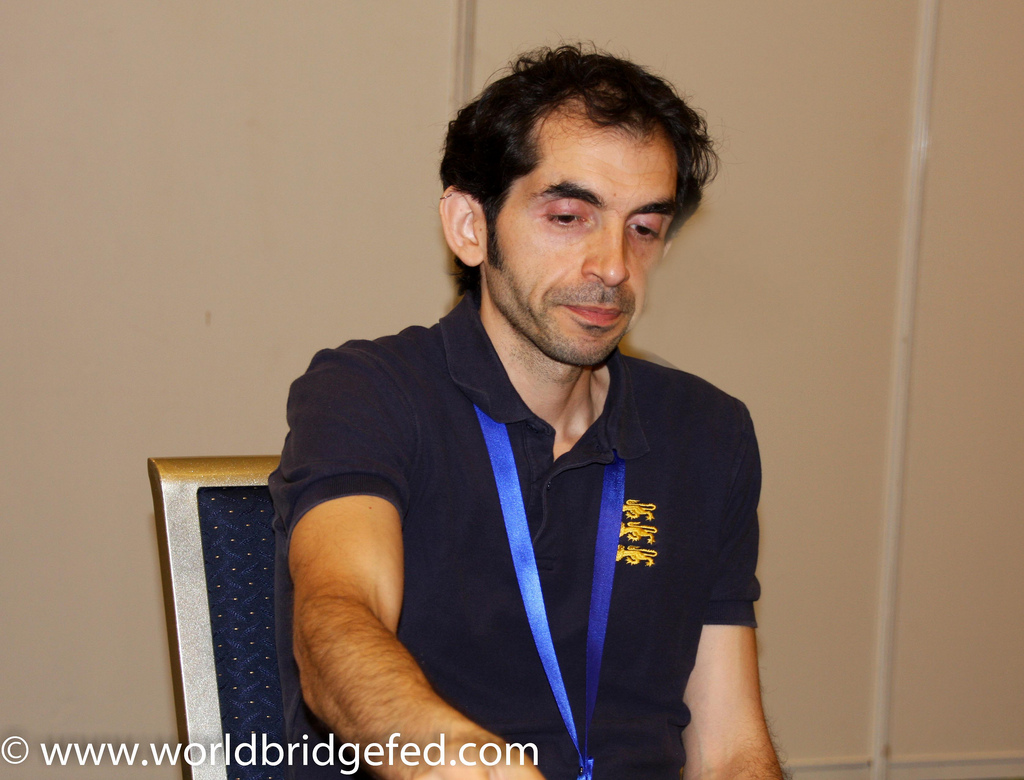Source: www.davidbakhshi.com
The Landy defence to a 1NT opening
In this article, I will look at an effective yet relatively straightforward convention: Landy. Originally the idea of Alvin Landy, it is a convention which allows an overcaller to show a two-suited hand following an opening bid of 1NT. In a nutshell, by bidding 2![]() over the opening 1NT, the overcaller shows that he holds both majors.
over the opening 1NT, the overcaller shows that he holds both majors.
Why is it useful to play a conventional defence to an opening bid of 1NT?
The main disadvantages in playing a natural defence lie in the frequency with which one can disrupt the auction as an overcaller, and the ability to find the best fit available. When holding a two-suited hand, it is clearly desirable to show both suits at once, as this will allow partner to choose the best one for the partnership. This is particularly important when holding both major suits, since they make it more likely that we can win a competitive auction (we can outbid the opponents without raising the trick level).
How does Landy allow an overcaller to show a two-suited hand?
By sacrificing a natural bid, one can increase the range of hands that can enter the bidding. In this case, the least useful natural bid is 2![]() . This is therefore given a conventional meaning, and is used to show both majors.
. This is therefore given a conventional meaning, and is used to show both majors.
What are the requirements for a Landy 2 bid?
bid?
This is a matter for partnership agreement, but it is sensible to vary the requirements according to both position and vulnerability, as well as the form of scoring.
The basic principle is that it is generally a good idea to prevent the opponents playing in 1NT, so a ‘direct’ overcall should be based on two good suits. A useful rule of thumb is for the suits to be at least 5-4 in length, with at least two honours in each suit (when non-vulnerable). However, with extra length, less high-card strength is necessary. When vulnerable, it is advisable to be 5-5 in the two suits, or for the overcaller’s hand to be 5-4-3-1 with opening values.
In the ‘protective’ position (i.e. 1NT – Pass – Pass – ?), a good working assumption is that the high-card points are approximately evenly divided between each partnership, so you can afford to compete more aggres sively. Successful match-point players will bid when 4-4 if non-vulnerable, and on many 5-4 hands when vulnerable.
Consider what you would bid in all situations with Hand A:

A sensible approach would be to overcall 2![]() in the direct position when nonvulnerable, and to bid 2
in the direct position when nonvulnerable, and to bid 2![]() in the protective position at any vulnerability. However, with a heart more and a diamond fewer, it would now be acceptable to bid 2
in the protective position at any vulnerability. However, with a heart more and a diamond fewer, it would now be acceptable to bid 2![]() in all positions and vulnerabilities.
in all positions and vulnerabilities.
How does one respond to a 2 overcall?
overcall?
Click Here to continue reading
